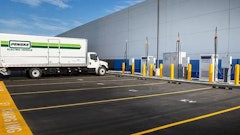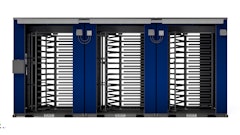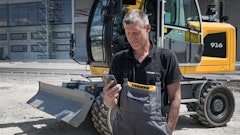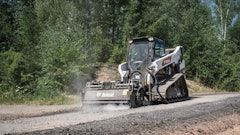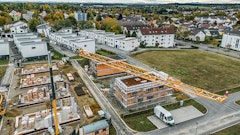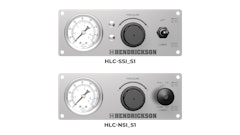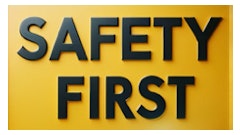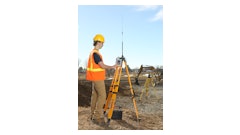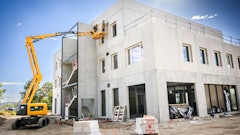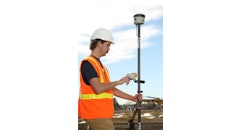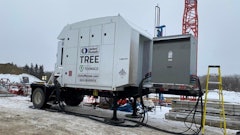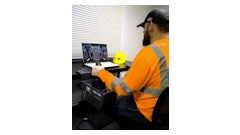
There is an old Japanese proverb on which I often find myself reflecting. “Be not afraid of going slowly, be afraid of standing still.” For business leaders in today’s rapidly, ever changing environment, the notion of standing still while the world evolves around us, is an all too familiar fear that – let’s face it – no company can afford. Those of us who carry the weight and responsibility of staving off the threat of stagnation are prone to fighting our own internal battles with the daunting challenge of keeping pace with relentless change.
Fortunately, I have had the privilege to work for Toyota for 34 years and have benefited from hundreds of years of Japanese wisdom passed down from generation to generation. This wisdom has opened the eyes of countless groups and individuals just like you, thanks to Toyota’s founding fathers who freely shared their knowledge gained by the hard lessons of life, so we wouldn’t have to endure them ourselves. In the spirit of that tradition, Toyota Material Handling remains committed to sharing that wisdom – what we call ‘the Toyota Way’ – as we continue a recent conversation we started with you, the readers of Rental, not long ago.
Now, if I haven’t hooked your attention yet, I’ll cut to the chase. The fact of the matter is, the responsibility doesn’t lie on your shoulders alone. Progress is everyone’s charge. It’s something all should share in, because when we do, there is a sharing of values, of goals, and of cause. A better term for that shared experience is “culture,” which our founder, Sakichi Toyoda, understood was the key to unlocking the full potential of any organization’s greatest asset – its people. Tapping into this resource can have transformative powers over time through small incremental changes.
In essence, the Toyota Way is a set of practices that can be incorporated by companies in any business sector that is based on two main pillars – Kaizen, or continuous improvement, and respect for people.
By focusing on these two principles, you can improve work processes, boost employee morale, and build a culture established on mutual trust and respect – ultimately leading to long-term business success. To better explain what this means and how to incorporate it, I want to focus on what I call the three “E”s of the Toyota Way, explore the different practices that can be used within each of those Es, and dive into the ways they can influence your business culture.
Engage
Let’s being with the first E – Engage.
A key piece of the Toyota Way is the concept of jidoka, which translates to “automation with a human touch.” Automation may be part of manufacturing’s large success – and there’s no denying the growth of automation in every part of our lives – but automation alone is imperfect. Without the human touch – without engaging our people – we lose the opportunity to identify inevitable problems and improve processes.
There is a Japanese phrase, “monozukuri wa hitozukuri,” which means “making things is about making people.” In our businesses, whether that be Toyota Material Handling or your rental business, our focus should be on engaging the customers and employees that keep our operations running. Our products are what we make, but our people are why we make them. At Toyota we often say – we win first with people, and then on products. We want to engage our people in a way that encourages them to identify problems and participate in improvements – and to go all in on their education.
Educate
We look for people that want to come to Toyota not just to work, but to think. Hopefully, you have a group of lifelong learners at your company who are always eager to learn new things. The next step is to align them with a good teacher, somebody who can help them grow and improve. In the process, your business will grow and your customers will be happier.
This is something that should come naturally to all of us. When I wake up each day, I remember the challenges of the day before and try to make things easier, better, smarter, and safer. That’s the whole idea of continuous improvement.
Kaizen is not about major improvements and projects – they don’t have to be Earth-shattering. It’s about many small improvements, made by everyone, every day. We like to say that small hinges can swing big doors. But without the right education – and a true desire to learn – your employees may lack the ability to identify those problems. Most importantly, though, when your team is constantly learning, they will often share that important knowledge with your customers.
An important part of kaizen and something we ask of our employees is finding ways to reduce muda. Muda, a Japanese word meaning waste, is the most common culprit for hidden costs within a business. When I say waste, I’m not just talking about the trash you take out to the dumpster. There are actually eight types of muda that are creating inefficiencies in your business today and, ultimately, costing you time and money:
- Transportation
- Overproduction
- Unnecessary motion
- Waiting
- Overprocessing
- Defective parts
- Inventory
- Perhaps most important – underutilized people
It can be easy to identify at least one clear action in each of these areas of waste, but the Toyota Way provides a standardized approach called 5S to eliminate waste with the goal “There is a place for everything and everything has a place.”
Empower
It’s not enough to just engage and educate your people – it’s critical to empower them to use their knowledge and unique abilities to identify, analyze, and solve problems. Here we can implement Genchi Genbutsu, which means “go and see with your own eyes.” This applies to working with employees, meeting the needs of customers, identifying ways to eliminate waste, getting to the root cause of a problem, and so much more. At Toyota, we like to empower our employees and our dealers to go and see for themselves when looking for solutions to a problem. This is often the best opportunity to ask the 5 Whys. If you ask yourself “why” something happened five times – digging a little deeper each time – you’ll likely find the root cause of the problem.
At Toyota, we value the unique traits that each person brings to our company and we want them to know they are the most important part of our business. Empowering our employees is one of the solutions to the eighth muda of underutilized people.
I am continuously impressed by the importance of culture and the significant impact it can have on the long-term success of a business. If we engage, educate, and empower our people to practice continuous improvement, identify and solve problems, implement process improvements, and eliminate waste, we can make meaningful and enduring improvements for our organizations and for our customers. That’s what the Toyota Way is all about.








